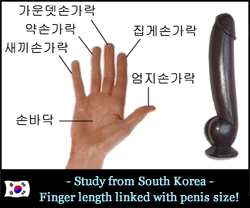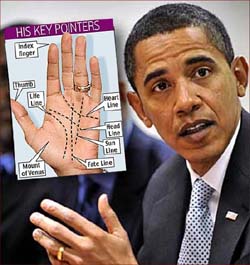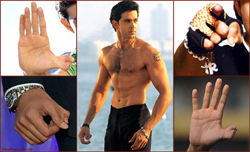A trigger finger is a common disorder of later adulthood characterized by catching, snapping or locking of the involved finger flexor tendon, associated with dysfunction and pain. In the video above hand surgeon Dr. Neema Amin (John Randolph Medical Center) describes treatment options and when to seek medical attention when the trigger finger gets more frequent or painful.
What causes trigger finger – a.k.a. stenosing tenosynovitis?
Causes for this condition are not always clear. Some trigger fingers are associated with medical conditions such as rheumatoid arthritis, gout, and diabetes. Local trauma to the palm/base of the finger may be a factor on occasion, but in most cases there is not a clear cause.
Learn more about the role of a trigger finger in a hand assessment for Diabetes Mellitus or Rheumatoid Arthritis:
• 28 Hand characteristics in Rheumatoid Arthritis
• 33 Hand characteristics in Diabetes Millitus
There have been about 40 hand transplants around the world!
April 21, 2009
|
In 1998 surgeons in France have carried out the world’s first hand transplant. In 1998 the transplanted hand came from an anonymous dead donor and was grafted onto the right arm of 45-year-old Clint Hallam, an Australian whose own hand was amputated in 1984 after an accident. In april 2009 the 6th hand transplant in the US (the 40th in the world) was performed on a Marine combat engineer who lost his hand during the war in Iraq: on Jan. 31, 2007, while holding a quarter-stick of TNT in his right hand when it accidentally exploded. The transplanted hand came from an 18-year-old West Virginia man who died of head trauma. HAND TRANSPLANTS BETTER THAN PROSTHETICS? The benefits of a hand transplant can very significant, but these advances are not very well described and rated yet. However, the rejection risk (the body may ‘reject’ the new hand) and ethical concerns still make it a touchy issue. Likely, what is needed is a controlled study comparing hand transplant recipients and prosthetics users of a hand prosthesis on various tasks, including quality-of-life measurements. • Dr. Joseph Imbriglia (hand surgeon) says:
• MD. John D. Lantos (bioethicist) says:
Sources: World’s first hand transplant & A functioning hand |

 “The prostheses become more of a burden than not, and the reason is that they have no sensation.”
“The prostheses become more of a burden than not, and the reason is that they have no sensation.”
 Finger length & penis size linked!
Finger length & penis size linked! The hands of Barack Obama
The hands of Barack Obama Megan Fox thumbs – TRIBUTE
Megan Fox thumbs – TRIBUTE Hrithik Roshan thumbs – TRIBUTE
Hrithik Roshan thumbs – TRIBUTE Hand Reading Research!
Hand Reading Research! MultiPerspective Palm Reading
MultiPerspective Palm Reading